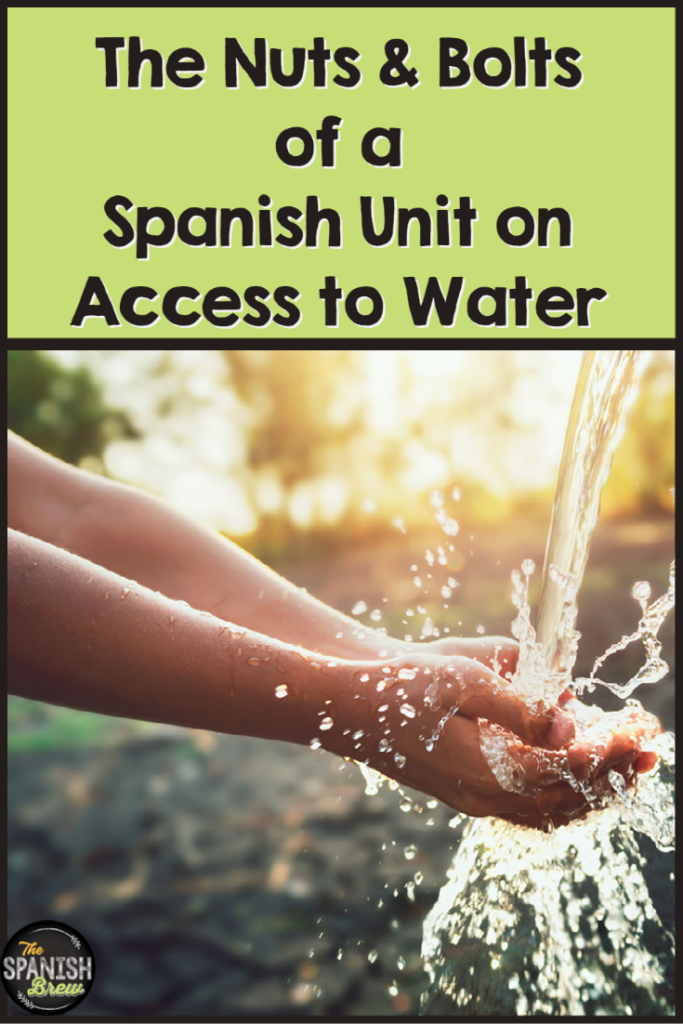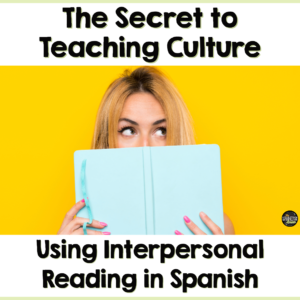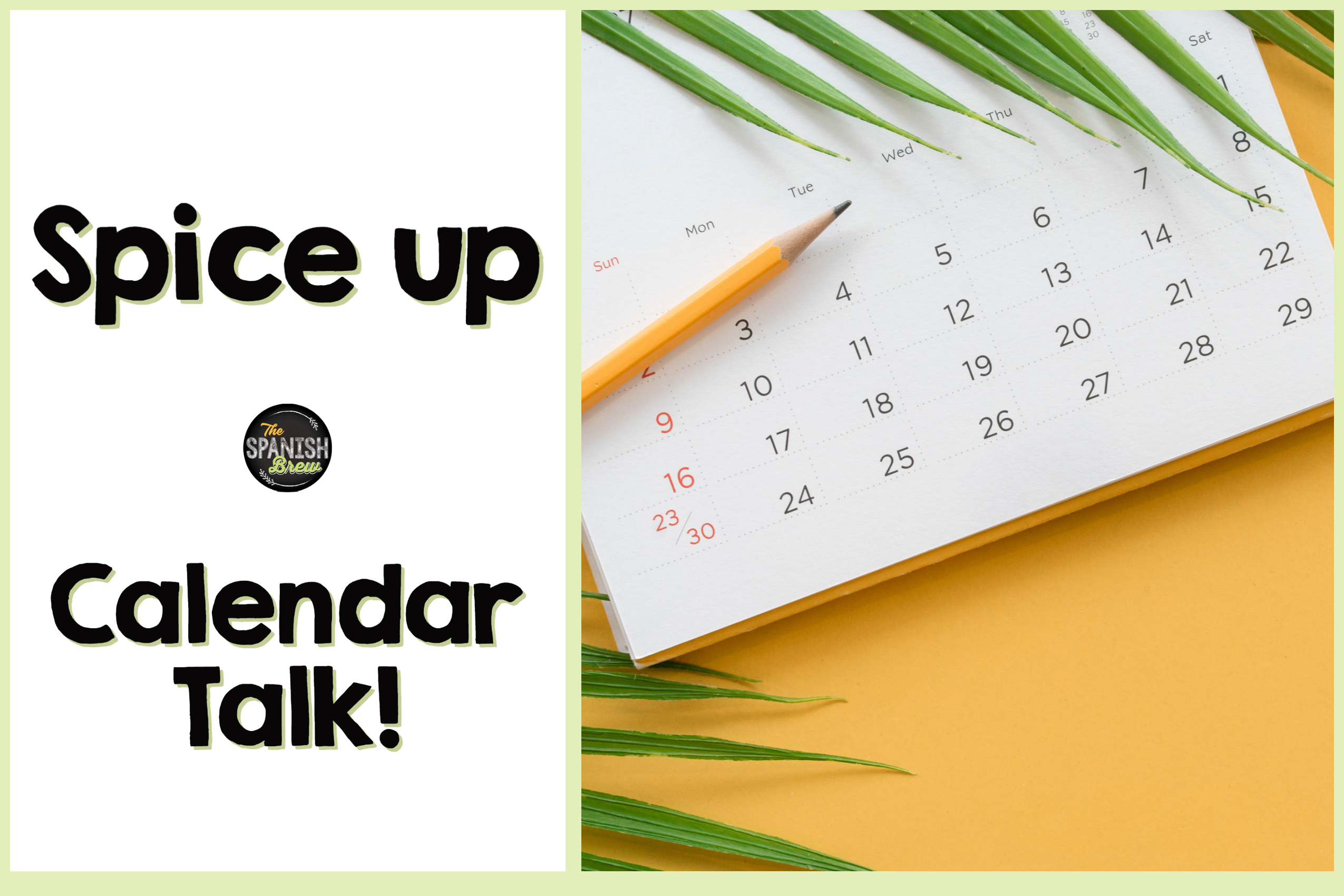Water is one of the most crucial elements we need for survival. And yet, so many communities do not have access to clean drinking water. It is a topic so basic yet essential that even my novice learners can easily understand its importance. I ask them… What would happen if you had to play your sport without water? What if the water here at school was turned off? What if you couldn’t drink water from the tap at home?
This is a topic that you can easily assimilate into your Spanish class! It pairs great with a food unit or in anticipation for Earth day. Curious about all the activities packed into this unit? Read on to find out!
Building their language skills
Step one is to give them enough language and vocabulary to be able to talk about the topic. I use images to get students thinking about the unit and our overall goals. Then we make personal connections to the topic while reinforcing the key vocabulary terms.
Activities included:
- ¿Qué ves? Think, See, Wonder. Using images to make predictions
- Essential vocabulary & matching activity
- Group activity to determine class preferences on drinks
- Personal true/false questions
- Read & draw. Essential vocabulary input
- Interpersonal speaking task cards
Comprehensible Reading Passages
Students read three passages relating to access to food and food deserts. High frequency verbs, cognates and essential vocabulary words are used to make these readings accessible to students. They make cross cultural comparisons between Nicagarua and the United States.
Activities included:
- 4 comprehensible reading passages
- Comprehension questions in English and Spanish
- Graphic organizers
- Draw to summarize the passages
- Map of Nicaragua
- Sentence completion activities
- True/false questions about the passages
- Interpersonal writing activity
Project based learning
Throughout this unit students demonstrate their knowledge through projects. It requires them to synthesise the material and use this knowledge for a greater purpose. Students research access to water in their school and in their own community. A multitude of activities are included to help them organize and process the information they research. Students complete a final presentational writing and/or speaking to share their knowledge about access to water in their community.
Activities included:
- Midpoint project- Water access at school
- Final project– Water access in their community
- Personal questions
- Graphic organizers
- Scaffolded writing exercises
- Graphs
- Venn Diagram
Skills assessed
- Interpersonal Writing
- Interpersonal Speaking
- Presentational Writing
- Presentational Speaking
- Interpretative Reading
- Interpretative Listening





No Comments